|
Implementing a low carbon emission strategy is a key for the industries to reach the Paris Climate Agreement goals, but how do we get there, and where to get insight on what actions to take? South Pole is a new member of S-HUB since early 2021. They are an international leading climate consultancy which works with businesses and governments across the globe to help realise deep decarbonisation pathways across industries, as well as offering emission reduction standards. We had the pleasure of talking with Jens Olejak, CEO at South Pole Sweden AB and Regional Director Nordics. Responsible for Nordic BD, operations and expansion.Jens Olejak has been working with sustainability- and climate related issues for the past 15 years. His business studies in the 90’s however had a complete different focus – finance theory and accounting, describing that he has grown into his role and found this line of work more meaningful and interesting than what he studied. At the same time, his studies and previous jobs has helped him combining commercial thinking with the necessity for companies to focus on business models to mitigate climate change as well as becoming more sustainable overall. He continues by saying the following; "Business and sustainability need to go hand in hand. My family and I love skiing in the Swedish mountains as well as hiking up north, like so many other families, and if we want to give our kids and future generations the possibility to enjoy that too, we need to do everything we can to stop climate change." How did you become interested in sustainability? I started off in 2006 advising energy companies and municipal energy suppliers in Germany on how to invest in CDM (The Clean Development Mechanism) projects being one of the measures for compliance within the EUETS. During the course of the years as voluntary action by corporates became more and more important, I saw that a really big number of companies needed help in finding their way in becoming more sustainable. This, in combination with a changing climate and polar caps and glaciers melting made me see the enormous task in front of us. Doing business by helping companies achieve their sustainability- and climate goals and hence doing my part in protecting future generations and my kids from climate change is what got me interested in sustainability. Only through business in combination with capital making investments possible enough momentum will be created to reach a 1,5-degree target and to mitigate climate change. What is South Poles motivation for joining S-HUB? The main motivation to join S-HUB is to increase our visibility in Norway and get to know the Norwegian business landscape. Via S-HUB we get the opportunity to share our expertise on various topics, and hopefully help more businesses on their net zero emissions journey. You can also read more about how we help companies go from ambition to action on our website: https://www.southpole.com/ Why is sustainability important for South Pole? Sustainability is what we do. It’s the core of our business and mindset. We provide sustainability- and climate related services and help corporates in their transformation into a low carbon economy. We believe that the proactive strategy of organizations and corporations is a key for climate transformation. Therefore, we cooperate closely with those companies and help them achieve ambitious climate goals. "Sustainability is what we do. It’s the core of our business and mindset."What are your goals moving forwards? South pole has achieved some fantastic results since we started in 2006, we’ve protected or restored over 55,000 km2 of land (around the total area of the African country of Togo), we’ve mobilized over US$ 15 billion clean energy investments (around the annual budget of the country of Uruguay) and we’ve positively affected 20 million people around the globe (around the total population of Sri Lanka) to mention a few. We want to continue down that path, and part of doing so is making sure our high-quality services are extended across the world, and the Nordic countries are of course very important markets. Helping all major and large corporations on their journey towards climate change will ultimately lead to achieving defined GHG reductions targets. That is also why we hope for effective partnerships as well as dedicated employees in Norway. What are the greatest challenges for businesses wanting to become sustainable? The greatest challenge for businesses is usually how to start and where to start. Companies are struggling with finding the right entry level as well as defining strategies and monitoring progress. Sometimes corporations are not aware of their impact. In that case the role of South Pole is to help understand their importance and the level of their contribution. What can be done to overcome these challenges? How can S-HUB help overcome these challenges? The main action that can be taken is to educate the market and share important insights. The cooperation with S-HUB will be valuable in reaching its network and making solutions to the complex ESG problems accessible.
0 Comments
Founded in 2007, CEMAsys specializes in Consultancy, Data Collection and Software Service Tool on Sustainability. They are providing innovative solutions and analytical expertise to Environmental, Social and Governmental challenges that companies are facing. CEMAsys was one of our first partners and joined S-HUB september 2017, and since then they have been actively cooperating with S-HUB, bringing valuable ESG insights on taxonomy and measuring strategies. Explore more about their fascinating journey from our discussion with Elisa Dahl Walderhaug, Head of Consulting at CEMAsys.
She continues by telling that, “I pursued my main degree in Climate Change Adaptation and Mitigation - my favorite subject. During my studies on the beautiful islands of Hawaii, I saw for myself what physical climate change did to ocean biodiversity. Coral reefs were grey and unlivable in contrast to the tourist catalogues that portrayed a colorful and thriving ocean. This was soon after the financial crisis of 2008, and people were really struggling to get by. For a long time the whole economy was in a deep crisis and the work with oceans and wildlife were put on hold. For me, this adds the S and the G to my ESG. It developed my sustainability understanding of the need for the full triple-bottom to change the status quo and make a JUST transition.” What is CEMAsys area of expertise? We provide expert advice, tools and training on ESG topics that gives our clients advantages when talking to their colleagues, company leaders, the board or any other stakeholders. We have developed a sustainability reporting system. A state-of-the-art cloud-based system called www.Cemasys.com that gathers, manages, and analyzes your ESG data. Our focus is to transfer knowledge from our consultants to inhouse sustainability employees, so they are equipped to make the right decisions when enhancing their sustainability performance. "At CEMAsys, sustainability is 100% of what we deliver." |
| His explanation of the S curve of innovation mentioned in his TED Talks is worth a listen and makes me believe that history will repeat itself and change will happen faster than ever. One blog everyone interested in Sustainability should read is ESG on a Sunday with Sasja Beslik. He has shown a lot of courage and taken upon his responsibility to share the financial corporate side in a transparent and interesting way. However, the most amazing and bravest voice of them all is Greta Thunberg. I hear her and I want to act, not just talk. |
"Be transparent and take responsibility beyond what you now consider being your own operational borders."
What can companies do to maximize their impact?
Measures and metrics are an added value when managing and incorporating your ESG strategy and performance. It enables an understanding of your company’s status quo, which sets the stage for transition. Not to mention the importance in this step when the EU taxonomy is active.
Also, studies show that setting a science-based climate target (SBT) creates successful emission reductions. It was found that from 2015-2019, companies following SBT’s reduced emissions by 25%; while over the same period global emissions from energy and industry increased by 3.4%. Metrics are easily communicated and are also what investors strive to get their hands on when wanting to invest in your green company.
Overall my main advice would be; be transparent and take responsibility beyond what you now consider being your own operational borders.
Measures and metrics are an added value when managing and incorporating your ESG strategy and performance. It enables an understanding of your company’s status quo, which sets the stage for transition. Not to mention the importance in this step when the EU taxonomy is active.
Also, studies show that setting a science-based climate target (SBT) creates successful emission reductions. It was found that from 2015-2019, companies following SBT’s reduced emissions by 25%; while over the same period global emissions from energy and industry increased by 3.4%. Metrics are easily communicated and are also what investors strive to get their hands on when wanting to invest in your green company.
Overall my main advice would be; be transparent and take responsibility beyond what you now consider being your own operational borders.
With human value at the very core, WeMe joined S-HUB in 2021. WeMe was founded by three individuals who share the same passions and have different backgrounds: Jan Strøm, Linda Krog Ødegaard and Rune Kroken. The vision of WeMe is to introduce AI-based technology helping to embrace full human potential and at the same time contribute to building healthy, sustainable and more productive workspaces. We had a pleasure to have a chat with Linda Krog Ødegaard.
Linda was introduced to Jan Strøm and Rune Kroken in july 2019 by a fellow friend, a true matchmaker, that knew they all shared a passion for the environment and that they all have a strong belief in the power that lies within us.
Linda, Jan and Rune come from different professional backgrounds yet found a great partnership in each other. Together they established WeMe on the 8th of March 2020.
Linda, Jan and Rune come from different professional backgrounds yet found a great partnership in each other. Together they established WeMe on the 8th of March 2020.
Why is sustainability important for WeMe?
We are all parents and being aware that one day, very soon, our children will inherit this planet we realize that nothing is more important.
What are the greatest sustainability challenges and opportunities for your industry?
I believe that our greatest challenge lies in ourselves and our behaviour. We need to change the way we live our lives and we need to change the way we run our businesses.
Moving forward, what are your plans and goals in relation to sustainability?
Right now, we are creating AI-based technology that will help businesses embrace the human potential in their workforce. This technology will be closing the gap between existing applications that help us manage hard skills, with the challenging task of managing soft skills.
By elevating self management, employees will be on the path to unlocking their full potential, and businesses that choose to embrace the human potential in their workforce can expect to see an increase in productivity and profitability, a healthier workforce and a sustainable business.
What do you wish to learn more about/see of changes in the years to come?
We, as humans, are capable of doing incredible things! Therefore I hope to see all of us taking action. We all have the power and ability to make a positive change for ourselves, for our next generations and for this amazing planet we live on. We can all be changemakers!
| We want to learn more about:
|
Who is your sustainability role model?
Greta Thunberg is an extraordinary example of what impact one person can have. There are many more individuals, and also businesses that truly lead the way.
One company we have been very inspired by is Vestre. Most importantly, we should all aspire to be a role model!
Any advice for other companies? What can companies do to maximize their impact?
Focus on developing soft skills! We like to say that by focusing on soft skills we are better able to solve real problems. And be more profitable. Dare to be engaged on a personal level - dare to be human.
Greta Thunberg is an extraordinary example of what impact one person can have. There are many more individuals, and also businesses that truly lead the way.
One company we have been very inspired by is Vestre. Most importantly, we should all aspire to be a role model!
Any advice for other companies? What can companies do to maximize their impact?
Focus on developing soft skills! We like to say that by focusing on soft skills we are better able to solve real problems. And be more profitable. Dare to be engaged on a personal level - dare to be human.
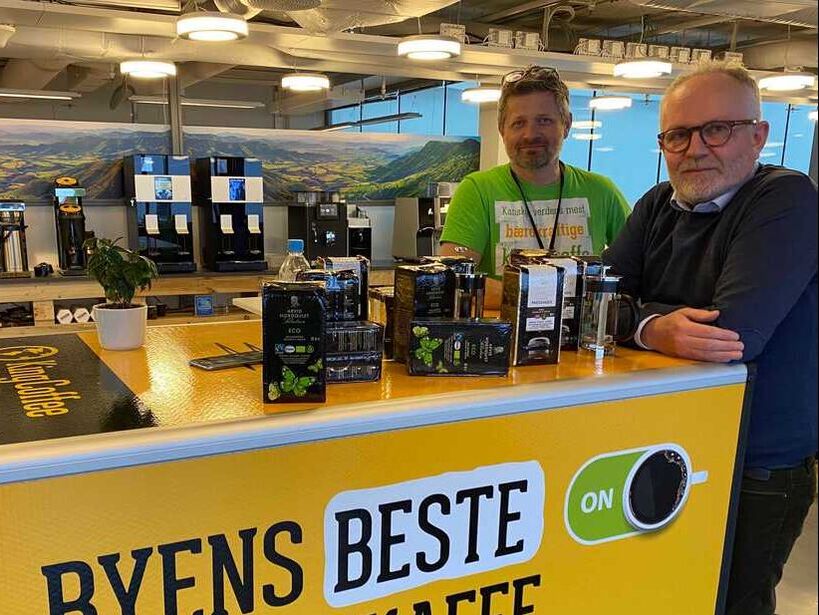 Erik Låbakk (til høyre) og Asgeir Vikanes
Erik Låbakk (til høyre) og Asgeir Vikanes Have you ever thought about where your office coffee comes from? We think it is about time you do.
King Coffee have been members of S-HUB since December 2018, and they are an uplifting example of how integrating of sustainability into every aspect of the business model generates great benefits, both locally and globally. By way of example, they turn their coffee grounds into mushrooms, they ensure water supply for three Ethiopian villages and work for gender equality in developing countries. We had the pleasure of talking with King Coffee Founder Erik Låbakk.
Read on to learn about some of the murky aspects of the coffee industry, and how a small Norwegian company is changing it from the inside out. Maybe you will reconsider your office coffee?
Please tell us a bit about your background
I have spent my working life on the commercial side. Fighting for profit and market shares. Some years ago I “changed side” and had a spell within procurement. That experience led my attention to social responsibility as a part of business conduct. In 2014 I started to write a document on how social responsibility can be built into a business model and used as a weapon when it comes to attracting the market and employees. The more I read, listened, investigated and wrote - the more I was dragged into it. The result is King Coffee. For me it is hard to see any other areas of business making more meaning and being more interesting, than working with social responsibility.
Why is sustainability important to King Coffee?
King Coffee is an impact-company working with coffee, so it is the reason why we are here. My driving force was to establish a no-compromise company that took its social responsibility very far. And I wanted to prove that social responsibility gives position, position gives customer and customers gives profitability, which again will give more social responsibility. A nice circle.
We have developed a model that ensures that more of the value created within coffee chain goes to the countries that grow the coffee. We want the coffee that is consumed in warm and safe Norwegian offices to contribute to sustainable development in the coffee countries. It is not more difficult than that. To succeed we must serve high quality coffee and do right when it comes to sustainable choices.
The coffee industry is not nice, mainly because there are big players that are too focused on their own profit. We are the opposite. Society first and we share the values. Our experience so far is that once the customers know, they care. So we are growing, and are thankful for that.
What are the greatest sustainability challenges and opportunities for your industry?
The coffee industry has big challenges when it comes to the environment, working conditions and poverty. It is the second largest commodity in the world, after oil. Grown in countries with less developed democracy and economics.
Unfortunately the industry is quite ugly actually. It takes 4000 hand-picked berries to make a kilo of coffee. And after it is picked there is a lot more to do. Wash or dry the berries, separate the berry from the peel, sort them, pack and store, ship them. Some players are happy to pay less than 20 kroner per kilo. Beats me.
The big players along the value chain of your coffee are not enough involved in the industry challenges. They are in pole position to help the farmers, the countries, but choose their own bottom line. That is sad. I will say that is a big sustainable challenge.
So we need new capitalists and we need customers using their purchasing power.
Moving forward, what are your plans and goals (in relation to sustainability)? What do you wish to learn more about/see of changes in the years to come?
Right now we are launching the first version of “Kafferegnskapet”. Maybe we can label that as a little innovation. Kafferegnskapet shows each customer the positive impact of their coffee consumption. We build water systems and schools, both initiatives of UN's Gold Standard. We have already built water systems ensuring that three villages in Ethiopia have fresh water each day for the rest of people's life. We have also built an early childhood care and development (ECCD) for children in Uganda. That is a direct result of choosing us as a supplier of coffee to their office. So business can really change peoples life, can't it?
We want to grow and do more good. Help more people, giving more people opportunities. And we want to show it to our customers, so they can see what they are a part of.
We want to establish new partnerships like the one we have with Gruten. Gruten is a beautiful circular company who makes value out of the coffee waste. We have, pro bono, used every Friday to collect waste from some of our customers and delivered it to Gruten. Coffee waste is Grutens commodity. Gruten makes absolutely lovely and high quality oyster mushroom of the waste. The mushroom goes back to the cantina and the employees can have a lovely, circular lunch based on their own coffee waste. Or buy the mushroom and take it home.
What I want to see more in the years to come, what I hope for? I hope more companies can give more bold sustainable statements and follow them through with their actions. That would be nice.
Who is your sustainability role model?
I do not have any specific person or company as a sustainability role model. I read a lot and there are so many inspiring people around. If I should give some names, I am inspired by Tony's Chocolonely, Patagonia (btw a customer in Norway), Ben and Jerry's, Paul Polman, but also Norwegian capacities such as Petter Gulli and your own Andreas Friis.
Unfortunately, it is easier to find anti-role models, but probably best not to mention by name.
Any advice for other companies? What can companies do to maximize their impact?
I do not fancy giving advice. Our experience is that doing good creates position and profitable business. Within reasonable frames, the more the better. Do more good. Show the impact to your stakeholders and talk loud about it so others can be inspired.
And change your supplier of office coffee!
King Coffee have been members of S-HUB since December 2018, and they are an uplifting example of how integrating of sustainability into every aspect of the business model generates great benefits, both locally and globally. By way of example, they turn their coffee grounds into mushrooms, they ensure water supply for three Ethiopian villages and work for gender equality in developing countries. We had the pleasure of talking with King Coffee Founder Erik Låbakk.
Read on to learn about some of the murky aspects of the coffee industry, and how a small Norwegian company is changing it from the inside out. Maybe you will reconsider your office coffee?
Please tell us a bit about your background
I have spent my working life on the commercial side. Fighting for profit and market shares. Some years ago I “changed side” and had a spell within procurement. That experience led my attention to social responsibility as a part of business conduct. In 2014 I started to write a document on how social responsibility can be built into a business model and used as a weapon when it comes to attracting the market and employees. The more I read, listened, investigated and wrote - the more I was dragged into it. The result is King Coffee. For me it is hard to see any other areas of business making more meaning and being more interesting, than working with social responsibility.
Why is sustainability important to King Coffee?
King Coffee is an impact-company working with coffee, so it is the reason why we are here. My driving force was to establish a no-compromise company that took its social responsibility very far. And I wanted to prove that social responsibility gives position, position gives customer and customers gives profitability, which again will give more social responsibility. A nice circle.
We have developed a model that ensures that more of the value created within coffee chain goes to the countries that grow the coffee. We want the coffee that is consumed in warm and safe Norwegian offices to contribute to sustainable development in the coffee countries. It is not more difficult than that. To succeed we must serve high quality coffee and do right when it comes to sustainable choices.
The coffee industry is not nice, mainly because there are big players that are too focused on their own profit. We are the opposite. Society first and we share the values. Our experience so far is that once the customers know, they care. So we are growing, and are thankful for that.
What are the greatest sustainability challenges and opportunities for your industry?
The coffee industry has big challenges when it comes to the environment, working conditions and poverty. It is the second largest commodity in the world, after oil. Grown in countries with less developed democracy and economics.
Unfortunately the industry is quite ugly actually. It takes 4000 hand-picked berries to make a kilo of coffee. And after it is picked there is a lot more to do. Wash or dry the berries, separate the berry from the peel, sort them, pack and store, ship them. Some players are happy to pay less than 20 kroner per kilo. Beats me.
The big players along the value chain of your coffee are not enough involved in the industry challenges. They are in pole position to help the farmers, the countries, but choose their own bottom line. That is sad. I will say that is a big sustainable challenge.
So we need new capitalists and we need customers using their purchasing power.
Moving forward, what are your plans and goals (in relation to sustainability)? What do you wish to learn more about/see of changes in the years to come?
Right now we are launching the first version of “Kafferegnskapet”. Maybe we can label that as a little innovation. Kafferegnskapet shows each customer the positive impact of their coffee consumption. We build water systems and schools, both initiatives of UN's Gold Standard. We have already built water systems ensuring that three villages in Ethiopia have fresh water each day for the rest of people's life. We have also built an early childhood care and development (ECCD) for children in Uganda. That is a direct result of choosing us as a supplier of coffee to their office. So business can really change peoples life, can't it?
We want to grow and do more good. Help more people, giving more people opportunities. And we want to show it to our customers, so they can see what they are a part of.
We want to establish new partnerships like the one we have with Gruten. Gruten is a beautiful circular company who makes value out of the coffee waste. We have, pro bono, used every Friday to collect waste from some of our customers and delivered it to Gruten. Coffee waste is Grutens commodity. Gruten makes absolutely lovely and high quality oyster mushroom of the waste. The mushroom goes back to the cantina and the employees can have a lovely, circular lunch based on their own coffee waste. Or buy the mushroom and take it home.
What I want to see more in the years to come, what I hope for? I hope more companies can give more bold sustainable statements and follow them through with their actions. That would be nice.
Who is your sustainability role model?
I do not have any specific person or company as a sustainability role model. I read a lot and there are so many inspiring people around. If I should give some names, I am inspired by Tony's Chocolonely, Patagonia (btw a customer in Norway), Ben and Jerry's, Paul Polman, but also Norwegian capacities such as Petter Gulli and your own Andreas Friis.
Unfortunately, it is easier to find anti-role models, but probably best not to mention by name.
Any advice for other companies? What can companies do to maximize their impact?
I do not fancy giving advice. Our experience is that doing good creates position and profitable business. Within reasonable frames, the more the better. Do more good. Show the impact to your stakeholders and talk loud about it so others can be inspired.
And change your supplier of office coffee!
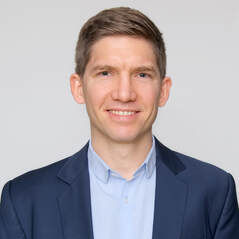
Transcendent Group is a management consultancy specialising in Governance, Risk and Compliance. They have hosted several webinars on sustainable finance, offer insights on sustainability in the GRC-context, and joined S-HUB this fall. Moreover, Transcendent Group has been named a ‘Gasellebedrift’ by DN two years in a row and rank number four on the Great Place to Work-list for Norway in 2020.
We had the pleasure of talking with Fredrik Fogde, who is a Senior Consultant advising on ESG risks and opportunities in relation to financial institutions, at Transcendent Group.
How did you become interested in sustainability?
My interest in sustainable development stems from my childhood, and from spending 15 of my most formative years in Laos. There I experienced first-hand the need for sustainable development, as well as some of pitfalls of development aid. I became convinced that a key element to sustainable development is responsible business practices by companies.
After the disappointing outcome of COP 2009 in Copenhagen, my sights were set on the topic of climate change, and how the economy and businesses can transition to a low-carbon economy, without regulation being the push factor.
Please tell us a bit about your background
I studied development studies at Copenhagen Business School after which I in 2013 moved to Zurich to join a start-up called Climate Neutral Investments. The start-up had a really exciting idea, which was to measure the carbon footprint of investment portfolios, and offer investors the option to offset the corresponding emissions. These were early days in terms of thinking about climate risks of investments, and while few investors were willing to pay for carbon credits, it soon became clear that the measurement of climate impact and risk itself, was gaining increasing focus.
What followed were four thrilling years where the topic exploded, and the business saw a widening and deepening of methodology and services developed. In 2017 we had grown from 2 to 8 employees, and we were acquired by ISS, an international service provider to the finance industry. After 3 years of integrating and cementing our business at ISS, it felt like a natural end to an exciting journey and I decided to pursue new challenges at Transcendent Group.
At Transcendent Group, I work with what I see as the next frontier for ESG and sustainability operations, namely to fully integrate these topics into risk management, strategy and compliance processes.
Who is your sustainability role model?
Greta Thunberg. Every time I hear one of her urgent, unabashed, and soul-piercing speeches, I am reminded that “we are the first generation to feel the effect of climate change and the last generation who can do something about it”. It replenishes my motivation and makes me want to work harder for a sustainable future.
What are the greatest (sustainability) challenges and opportunities for your industry?
Travel. Management consultancy firms are flying in experts left and right, but Covid-19 has shown us that a lot of the tasks that has traditionally been tackled by on-site teams can be solved without unsustainable travel. We’re trying to educate and challenge our clients about this, and about the silver lining of being able to use resources cross-border without paying for travel expenses. In terms of opportunities, we see several opportunities in terms of the services we offer. With ESG data and topics becoming increasingly mature, the time has arrived to treat ESG risk management and reporting with the same scrutiny as financial reporting and governance.
Moving onward, what are your plans and goals?
In line with market developments and client expectations, we are expanding our materiality analysis to also focus on financial materiality. Depending on the outcome of this, we will look to potentially expand on our current sustainability strategy to include elements from a double-materiality point of view.
Any advice for other companies?
We are a relatively small company, and our advice would be directed towards other smaller companies, for whom sustainability topics and reporting are often cited as too burdensome and resources intensive. Our advice would be that it does not have to be, and that setting up a ESG framework can identify otherwise hidden risks and opportunities for your organisation.
We had the pleasure of talking with Fredrik Fogde, who is a Senior Consultant advising on ESG risks and opportunities in relation to financial institutions, at Transcendent Group.
How did you become interested in sustainability?
My interest in sustainable development stems from my childhood, and from spending 15 of my most formative years in Laos. There I experienced first-hand the need for sustainable development, as well as some of pitfalls of development aid. I became convinced that a key element to sustainable development is responsible business practices by companies.
After the disappointing outcome of COP 2009 in Copenhagen, my sights were set on the topic of climate change, and how the economy and businesses can transition to a low-carbon economy, without regulation being the push factor.
Please tell us a bit about your background
I studied development studies at Copenhagen Business School after which I in 2013 moved to Zurich to join a start-up called Climate Neutral Investments. The start-up had a really exciting idea, which was to measure the carbon footprint of investment portfolios, and offer investors the option to offset the corresponding emissions. These were early days in terms of thinking about climate risks of investments, and while few investors were willing to pay for carbon credits, it soon became clear that the measurement of climate impact and risk itself, was gaining increasing focus.
What followed were four thrilling years where the topic exploded, and the business saw a widening and deepening of methodology and services developed. In 2017 we had grown from 2 to 8 employees, and we were acquired by ISS, an international service provider to the finance industry. After 3 years of integrating and cementing our business at ISS, it felt like a natural end to an exciting journey and I decided to pursue new challenges at Transcendent Group.
At Transcendent Group, I work with what I see as the next frontier for ESG and sustainability operations, namely to fully integrate these topics into risk management, strategy and compliance processes.
Who is your sustainability role model?
Greta Thunberg. Every time I hear one of her urgent, unabashed, and soul-piercing speeches, I am reminded that “we are the first generation to feel the effect of climate change and the last generation who can do something about it”. It replenishes my motivation and makes me want to work harder for a sustainable future.
What are the greatest (sustainability) challenges and opportunities for your industry?
Travel. Management consultancy firms are flying in experts left and right, but Covid-19 has shown us that a lot of the tasks that has traditionally been tackled by on-site teams can be solved without unsustainable travel. We’re trying to educate and challenge our clients about this, and about the silver lining of being able to use resources cross-border without paying for travel expenses. In terms of opportunities, we see several opportunities in terms of the services we offer. With ESG data and topics becoming increasingly mature, the time has arrived to treat ESG risk management and reporting with the same scrutiny as financial reporting and governance.
Moving onward, what are your plans and goals?
In line with market developments and client expectations, we are expanding our materiality analysis to also focus on financial materiality. Depending on the outcome of this, we will look to potentially expand on our current sustainability strategy to include elements from a double-materiality point of view.
Any advice for other companies?
We are a relatively small company, and our advice would be directed towards other smaller companies, for whom sustainability topics and reporting are often cited as too burdensome and resources intensive. Our advice would be that it does not have to be, and that setting up a ESG framework can identify otherwise hidden risks and opportunities for your organisation.
ASIA Aker Brygge are pioneering sustainability in the food industry. They have integrated sustainability into the core of their operations, and are the first restaurant in the world to be verified by the UN through the Climate Neutral Now initiative. In collaboration with CHOOOSE, they have reduced more than 7000 tons of CO2, and are currently working on sustainable supply chains with FactLines.
ASIA Aker Brygge has been a member of S-HUB since May 2018 and is one of the initiators of S-FOOD, which is becoming a leading cluster for sustainable food in Norway. We had the pleasure of talking to Pernille Koppang, who is the Sustainability Director and Operations Manager of ASIA Aker Brygge.
ASIA Aker Brygge has been a member of S-HUB since May 2018 and is one of the initiators of S-FOOD, which is becoming a leading cluster for sustainable food in Norway. We had the pleasure of talking to Pernille Koppang, who is the Sustainability Director and Operations Manager of ASIA Aker Brygge.
| Who is your sustainability role model? I remember reading Gro Harlem Brundtland’s definition of sustainable development in my high school textbook. Today, the definition is still a fundamental guideline for how we should live. On one hand, it seems so obvious and simple; we must manage the earth’s resources in a manner enabling future generations to benefit from them too. On the other hand, this is an incredibly large responsibility and can seem completely impossible to achieve. Norwegians’ resource consumption amounts to 3.5 globes annually, so we have a long way to go. |
How did you become interested in sustainability?
Based on personal interest, some of my colleagues and I started to investigate how ASIA Aker Brygge could become more sustainable. A core aspect of sustainability is to properly utilise the resources we have. We therefore decided to start with ourselves, and have now cut out straws and all other single-use disposable items, replaced our previously imported water with filtered tap water and developed an extensive vegan menu, as some of our measures.
It was important for us to incorporate sustainability into the core of our operations, so we also became part of S-HUB who helped us develop a sustainable business strategy. Becoming part of the S-HUB community opened many doors, and provided us with inspiration, knowledge and a network for sustainability.
What has ASIA Aker Brygge achieved so far?
We have focused on developing a profile that is 100 percent transparent. There has been a lot of talk about how positive nudging can encourage sustainable consumption. Although this is important, I think we need honest and clear communication, so that consumers themselves have enough knowledge to make informed and sustainable decisions.
Each year, we produce a sustainability status report where we summarise and analyse the impact of our activities that year. This is a valuable way to measure how our actions, spanning from which ingredients we purchase to how we choose to word our menu, can enable customers to make more sustainable choices.
Furthermore, we are very proud to be the first restaurant to receive recognition from the UN through the Climate Neutral Now-initiative. We actively try to reduce our footprint, and simultaneously compensate for both our customers’ and our own emissions.
Moving onward, what are your plans and goals?
In collaboration with FactLines, we are analyzing our own supply chain and our suppliers’ supply chains, to ensure that they are sustainable and ethical. Customers have a lot of power to significantly influence their suppliers, so it is important to actually use this power as a tool to create sustainable supply chains.
Moreover, we are collaborating with S-HUB to develop S-FOOD. When we started off, we neither had competency nor backgrounds related to sustainability. A lot of our work has therefore been based on “learning by doing”. Knowing where to start and who to approach has been a challenge. The reason why we started S-FOOD was to solve this challenge, by creating a place for small and medium sized businesses with limited resources to acquire knowledge and share their experiences. Our aim is to positively influence restaurants and other key players in the food industry, and create an understanding of sustainability that goes beyond organic and locally produced food.
What are the greatest challenges for the food industry?
Food waste. In Norway we import a lot of food, and are spoiled for choice. Having all these options means that we generate more food waste, so this is something that we need to become aware of and work on.
What are the greatest opportunities for the food industry?
Communication and collaboration. I hope the industry can come together and take responsibility to find the best solutions. This is why S-FOOD wants to make a road-map for “how to be as sustainable as possible in Norway”.
Any advice for other companies?
I would encourage people in the industry to be more curious about how they can contribute. For example, we Eco-Lighthouse certified ourselves last year, which was a valuable exercise to map out our own efforts. I would also recommend companies in the food industry to join “Kutt Matsvinn” to use food more efficiently, and to join S-FOOD to create new collaborations, access information and network. And most importantly, to save the world.
Archives
April 2021
March 2021
February 2021
December 2020
October 2020

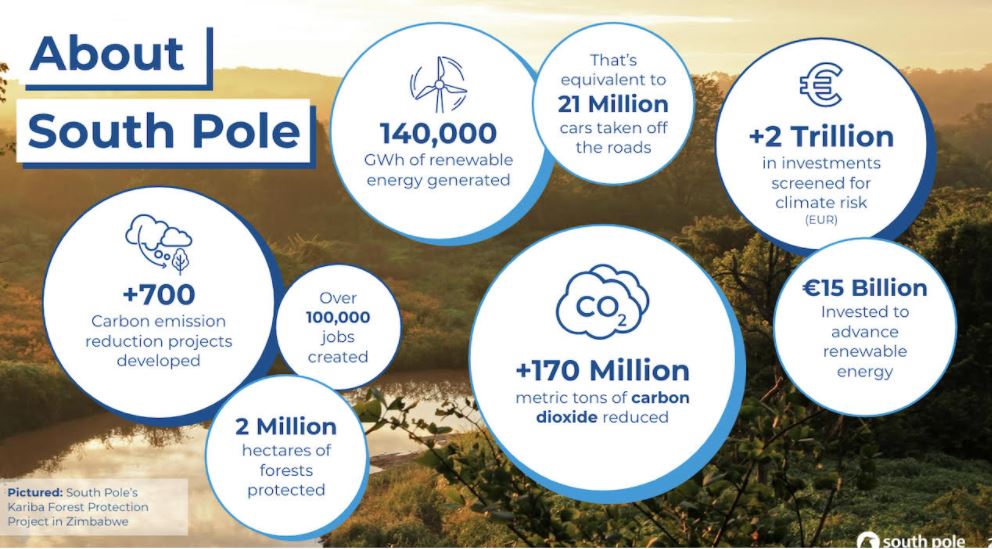
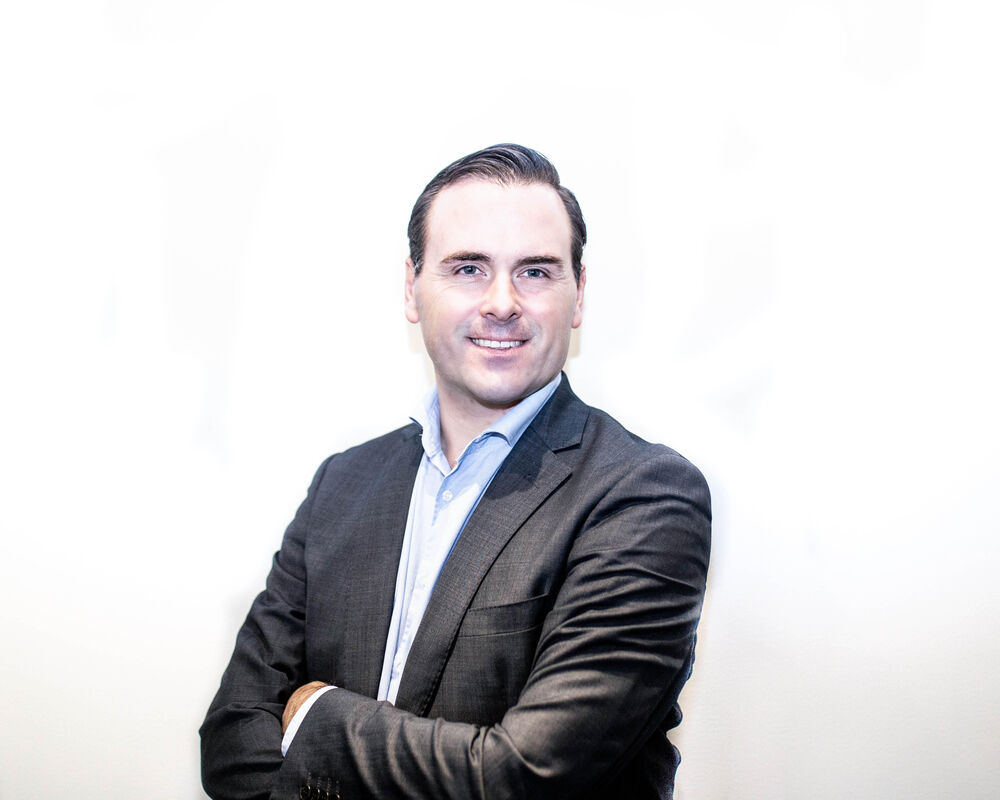
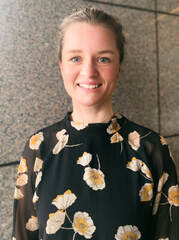
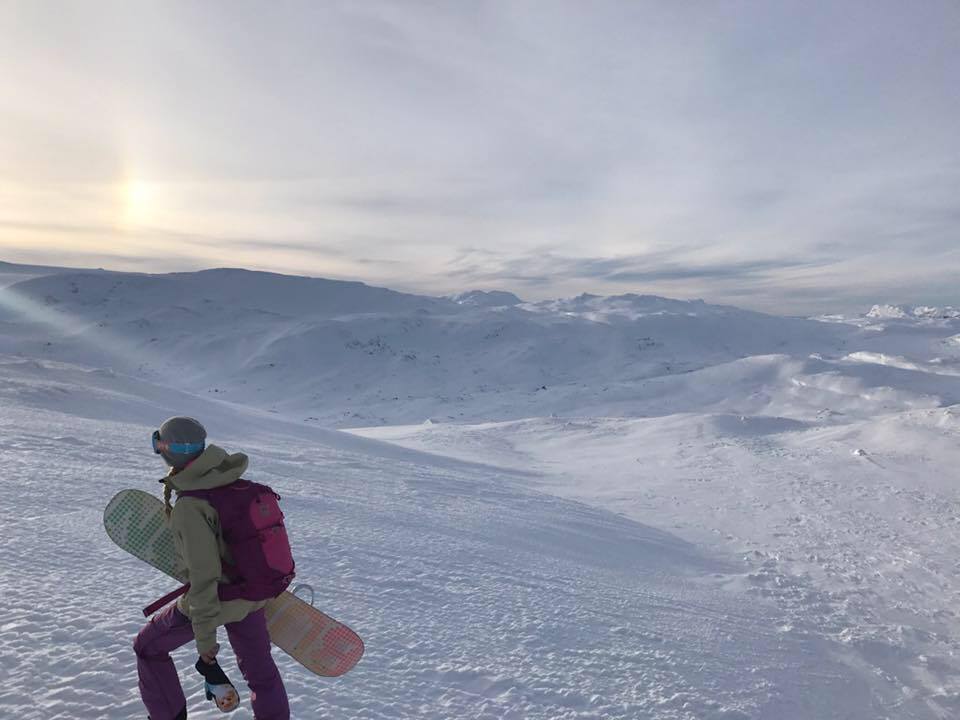
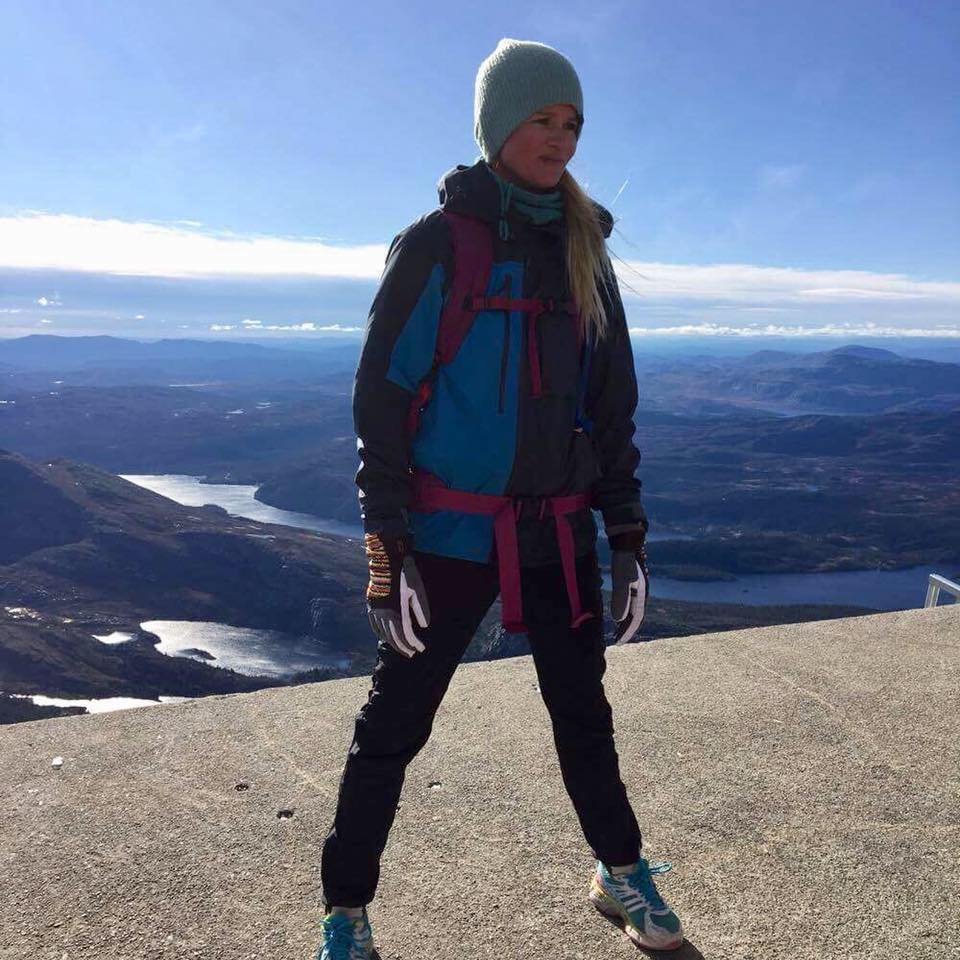
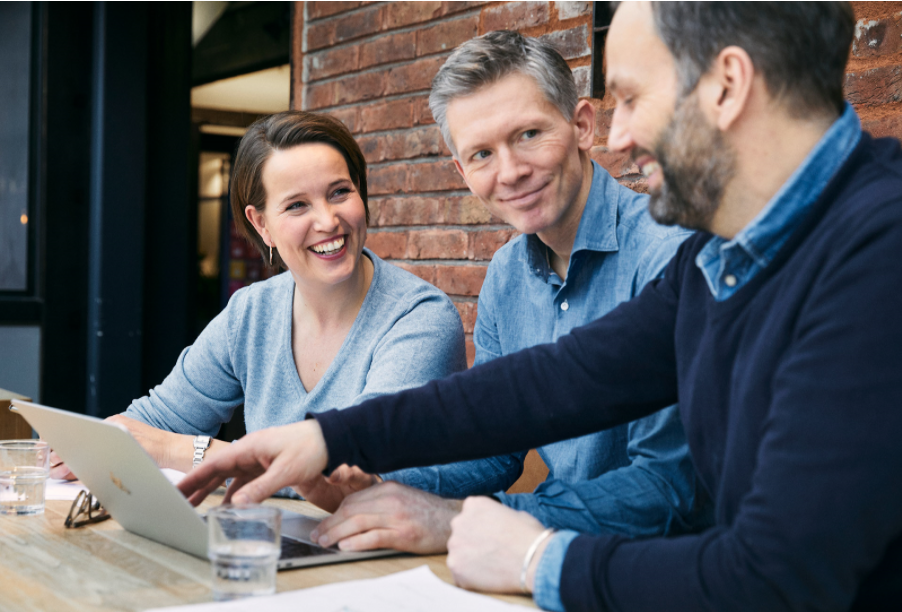
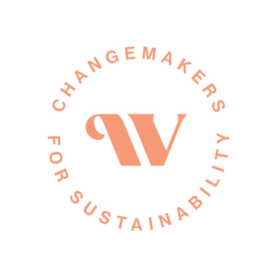
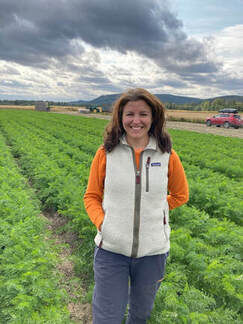
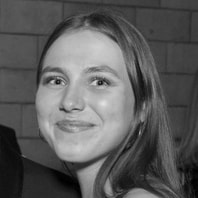
 RSS Feed
RSS Feed